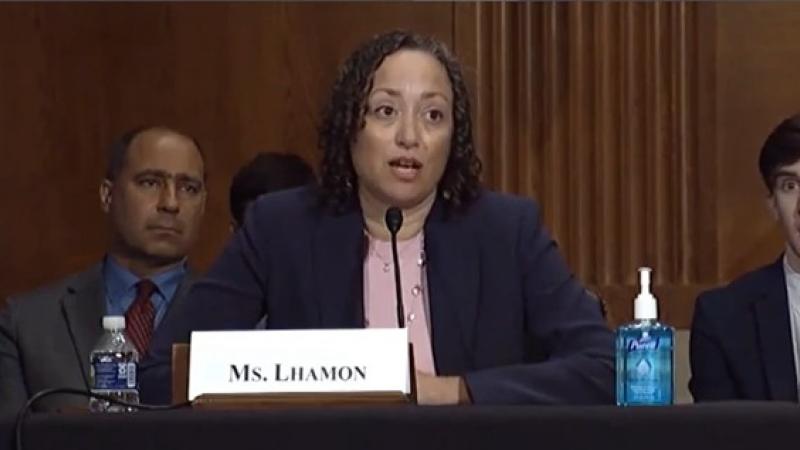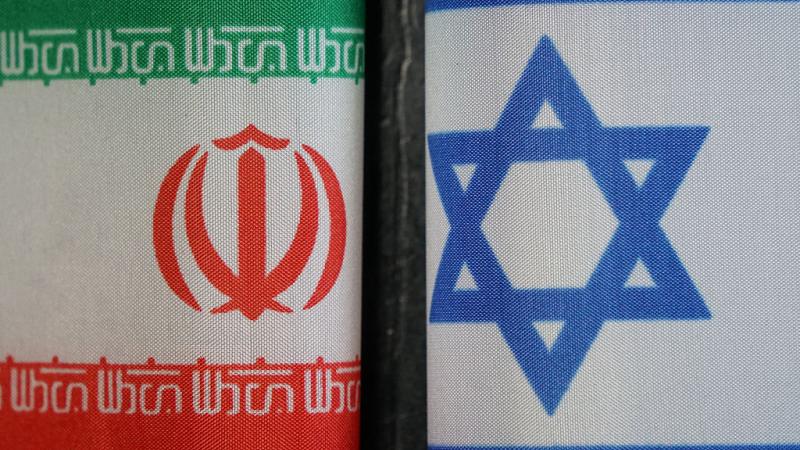New evidence calls into question prosecutors' claims in high-profile fundraiser corruption case
Complaints filed with DOJ, Congress allege another fundraiser's code tool credited for arranging illegal foreign donations.
Newly recovered evidence is calling into question the dramatic claims federal prosecutors made in court during the conviction and sentencing of a high-profile political fundraiser for arranging straw donations from foreign sources.
Emails provided to Congress and reviewed by Just the News show that some foreign donations to Barack Obama's 2013 inauguration and Hillary Clinton's 2016 campaign, which prosecutors alleged were arranged by California businessman Imaad Zuberi, were in fact arranged by another fundraiser, whose fundraiser tracking code kept by the campaigns for internal tracking is written on the forms.
The emails also show Zuberi explicitly instructed his fellow fundraiser to comply with federal law and only collect donations from American citizens and lawful residents, not foreigners forbidden from donating to elections.
"Just keep getting Americans and Green Card holders to keep contributing to Obama-Biden and other Democrats like [then-congressman] Howard Berman and etc," Zuberi wrote his business associate Sam Jauhari in a May 13, 2012 email that prosecutors put into the court record.
You can read that email here:
The new evidence, purportedly recovered in recent weeks from Zuberi's old computers, led defense lawyers and advocates for Zuberi to file complaints against the prosecutors with both the Justice Department Office of Professional Responsibility and the Senate Judiciary Committee.
The complaints amount to an extraordinary turnabout in a case in which the defendant originally agreed to plead guilty to arranging foreign donations, but then changed course and insisted on his innocence after receiving a 12-year prison sentence.
They allege lead prosecutor Daniel O'Brien engaged in misconduct and misled the trial judge following an exchange of insults with Zuberi, prompted by O'Brien's comments about the defendant's recently deceased mother.
Jauhari and O'Brien did not return calls or emails seeking comment.
It is not uncommon for defendants to impugn their accusers in the Justice Department. But Zuberi's case stands out, both because he worked closely with the government for two decades as an informant and intelligence asset and his new defense team is comprised of highly respected former U.S. officials, including the ex-top lawyer for the CIA.
Claude Arnold, a retired special agent in charge of the Los Angeles Immigration and Customs Enforcement Office who now works on the Zuberi defense team, personally wrote a May 18 complaint to the Senate and House Judiciary Committees blowing the whistle on what he believes was misconduct by the prosecutors.
After his disastrous first "proffer session" with Zuberi, who called O'Brien a "loser" widely disliked among U.S. attorneys, the prosecutor "pursued his personal interest in revenge against Mr. Zuberi rather than the interest of justice and even the country," the complaint alleges.
O'Brien has taken "full advantage" of Zuberi being unable to defend himself with evidence that the defendant claims the government deleted from his devices but which O'Brien alleged Zuberi himself deleted.
It allowed the prosecutor to continue his pattern of "reckless misrepresentations and mischaracterizations even in post-sentencing positions," the complaint reads. Whether O'Brien failed to investigate a possible federal role in the deletion of evidence or "buried the evidence" he found, he deprived Zuberi and the court of exculpatory evidence, which would have "thrown his entire narrative into question."
The allegations join recent claims about federal prosecutorial and law enforcement misconduct in other high-profile cases such as the Russia collusion investigation.
Neither the Justice Department nor O'Brien responded to queries seeking responses to the allegations. A clerk for U.S. District Judge Virginia Phillips, who presided over the case, responded to an email but did not answer whether Phillips knew that Jauhari's tracking code appears on the campaign donation forms.
Jauhari did not respond to emails to his business and personal accounts, and a man who answered to "Sam" hung up the phone after being told the purpose of the call. The United Arab Emirates phone number did not allow Just the News to leave a voicemail.
In a criminal information filed in connection with Zuberi's plea deal, prosecutors alleged that foreign donations from a Saudi businessman, Jauhari's wife — a Kuwaiti citizen at the time — and another Jauhari overseas relative were illegally arranged in spring 2015 by Zuberi to Hillary Clinton's 2016 campaign.
The three donations are listed in Federal Election Commission records, confirming they were accepted by the Clinton campaign in spring 2015. The emails recently recovered by Zuberi's legal team, however, show that Jauhari arranged the donations and forwarded the information to Zuberi to get it to the campaign and that the Clinton campaign repeatedly asked for proof the overseas donors could legally donate as either U.S. citizens or green card holders.
Two of the Clinton donation forms — for Jauhari's wife and his sister-in-law — clearly listed the "52734" fundraiser code the Hillary Clinton campaign had assigned to Jauhari to track donations he collected, the emails show.
The emails also show that the third alleged foreign donor, Saudi businessman Mohammed Al-Rabhani, was told by Zuberi that his donations and others would be credited to Jauhari's donor code kept by the Clinton campaign.
"Mohammad, I am having Clinton people issue raiser code for Sam and Kate [Al-Rahbani's American wife] so you can do fund raising in Middle East and London," Zuberi wrote on April 17, 2015, copying Jauhari on the email.
About two weeks later, Jauhari wrote Zuberi he had raised four more donations for Clinton, including the one from his Kuwaiti wife and his overseas relatives. The donation forms crediting Jauhari's Clinton fund-raising code were attached to the email and listed addresses in Kuwait and Lebanon for the donors.
"FYI. So far 4 in total and soon the 6 as promised," Jauhari wrote Zuberi on May 5, 2015, clearly taking credit for donations that prosecutor O'Brien would later tell a federal court had been raised by Zuberi.
Jauhari, an American citizen who boasts business ties to Kuwait and Qatar on his LinkedIn page, was not prosecuted in the Zuberi case and cooperated with prosecutors.
Documents reviewed by Just the News show Jauhari told prosecutors that he knew his wife, his overseas relative and Al-Rahbani were not American citizens or lawful U.S. residents when he collected the donations and sent them on to Zuberi.
Four years earlier, Zuberi had emailed Jauhari reminding him only U.S. citizens and green-card holders should make political donations.
The new documents and complaints raise questions about other claims the prosecutors made.
For instance, prosecutors claimed in court documents that Zuberi arranged for a bogus draft consulting arrangement with Jauhari to hide the flow of money for illegal foreign donations, but the contract was never signed.
The complaint alleges Zuberi's legal team has recovered a signed copy of the contract — which prosecutors allegedly possess — showing in fact it was executed to cover a specific scope of work.
Jauhari was supposed to pay Zuberi at least $350,000 a year for consulting services. "This amounts to $1,750,000 for the time frame" O'Brien claimed. Zuberi was receiving payments "exclusively for campaign donations," Arnold told Senate Judiciary.
The figure "dwarfs" the $1.5 million prosecutors said Zuberi received from Jauhari for campaign donations that he "siphoned off for personal use."
The complaint also alleges that O'Brien "knowingly underrepresented" to Judge Phillips the "financial wherewithal" of Zuberi's mother, to support his claim that her political contributions were actually her son's. His mother had more than $1 million in liquid assets and a monthly income of up to $18,000, yet the prosecutor's financial portrayal of her is the "sole basis for nearly half" the criminal election violations.
It was O'Brien's failure to show respect to Zuberi's mother that started the prosecutor's quest to "destroy" and "humiliate" the defendant, according to Arnold's complaint.
In an early meeting with Zuberi's defense team, O'Brien said the recently passed matriarch was engaged in "fraudulent" campaign activity. They asked the prosecutor to not mention this to Zuberi in their meeting scheduled for several days later to judge the defendant's "potential abilities as a cooperator."
O'Brien did it anyway, and Zuberi "reacted immediately and emotionally," calling him "stupid" and a "loser" widely unliked among his peers. The prosecutor became "visibly upset, left the room" and returned to ask "pointed questions insinuating criminal wrongdoing" on a business deal involving Sri Lanka.
It was after this botched proffer session that O'Brien's attitude toward Zuberi "completely changed," to the point where he actively interfered with other prosecutors' attempts to seek cooperation with Zuberi "for the benefit of American interests," Arnold alleged.
In a conversation with Zuberi's lawyer, O'Brien even admitted "I might have said" that he wouldn't go easier on Zuberi even for stopping the next September 11 terrorist attack, according to Arnold's complaint.















